
The World Scout Jamboree is a Scouting jamboree of the World Organization of the Scout Movement, typically attended by several tens of thousands of Scouts from around the world, aged 14 to 17. At the jamboree, many scouts swap badges.

The 4th World Scout Jamboree, a gathering of Boy Scouts from all over the world, was hosted by Hungary and held from 2 to 13 August 1933. It was attended by 25,792 Scouts, representing 46 different nations and additional territories. They encamped around the Royal Palace in the Royal Forest of Gödöllő, about 11 miles from the capital of Budapest.

Scouts Australia is a trading name of The Scout Association of Australia, which is the largest scouting organisation in Australia, with over 50,000 Youth Program Participants, and is a member of the World Organization of the Scout Movement. It was formed in 1958 and incorporated in 1967. It operates personal development programs for children and young adults from 5 to 25 years of age with programs successively opened to girls after 1971.

In Scouting, a jamboree is a large gathering of Scouts and/or Girl Guides who rally at a national or international level.
The World Federation of Independent Scouts (WFIS) is a non-governmental international Scouting organization with over 7 million members in 151 affiliated Scout organizations in 65 countries. WFIS was formed in Laubach, Germany, in 1996 by Lawrie Dring, a British Scouter with the independent Baden-Powell Scouts' Association (BPSA).
Scouting started in New South Wales, a State of Australia, in 1908. In the early years, local Boy Scout patrols and troops formed independently and several separate associations began operating including the Chums Scout Patrols, League of Boy Scouts, Girl Peace Scouts, Boys Brigade Scouts and Church Lads Brigade Scouts. These were later joined by The Boy Scouts Association, The Girl Guides Association and Life-Saving Scouts and Life Saving Guards of the Salvation Army. Some local Scout groups moved affiliation between the different associations.
The Australian Scout Jamboree is a national jamboree overseen by Scouts Australia. They have been held regularly since 1934, except for 1942 and 1945 due to World War II, and in 2022 due to the COVID-19 pandemic. Jamborees are generally held early in January and typically runs for ten nights.

An adaptation of the Rovers training program is operated by Scouts Australia for adults aged between 18 and 25 years of age.
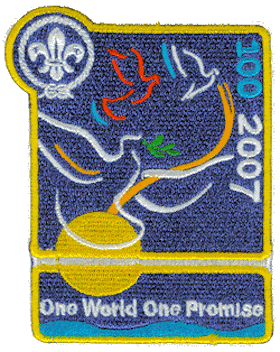
The Scouting 2007 Centenary comprised celebrations around the world in which Scouts celebrated 100 years of the world Scout movement. The original celebrations were focused on the United Kingdom, such as the camp on Brownsea Island, the birthplace of Scouting, and the 21st World Scout Jamboree in Chelmsford, Essex.

Brownsea Island Scout camp, is a historic Scout campsite on Brownsea Island in Poole Harbour in southern England, which was the site of Robert Baden-Powell's 1907 experimental camp for boys to test ideas for his book Scouting for Boys, which led to the rapid growth of the Scout movement. Boys from different social backgrounds participated from 1 to 8 August 1907 in activities around camping, observation, woodcraft, chivalry, lifesaving and patriotism.

The 1st World Scout Jamboree was held from 30 July 1920 to 8 August 1920 and was hosted by the United Kingdom at Kensington Olympia in London. 8,000 Scouts from 34 nations attended the event, which was hosted in a glass-roofed building covering an area of 6 acres (24,000 m2).

The 3rd World Scout Jamboree was held in 1929 at Arrowe Park in Upton, near Birkenhead, Wirral, United Kingdom. As it was commemorating the 21st birthday of Scouting for Boys and the Scouting movement, it is also known as the Coming of Age Jamboree. With about 30,000 Scouts and over 300,000 visitors attending, this jamboree was the largest jamboree so far.
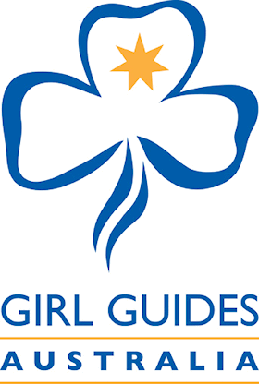
Girl Guides Australia (GGA) is the national Guiding organisation in Australia. Its mission is to empower girls and young women to grow into confident, self-respecting members of the community. Membership is open to all girls and young women from all cultures, faiths and traditions. Guiding groups formed in Australia as early as 1909, and by 1920 Girl Guide Associations had been formed in six states. In 1926 the State Associations federated and formed a national organization which became a founding member of the World Association of Girl Guides and Girl Scouts in 1928. It still operates as a federated structure made up of six state-based Guiding organisations. It has roughly 19,000 members including adult and youth members. Over a million Australian women are or have been Guides. The Girl Guide emblem incorporates the Commonwealth Star.

David Michael Baden-Powell, 4th Baron Baden-Powell was a British AMP insurance sales agent and an active supporter of the Scout Movement.
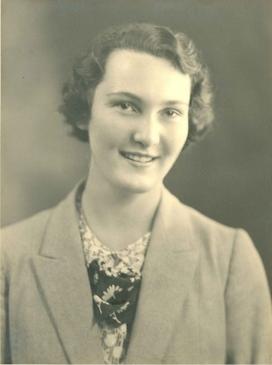
Betty St Clair Clay was the younger daughter of Olave Baden-Powell, the first Chief Guide and Robert Baden-Powell, 1st Baron Baden-Powell, the founder of Scouting.
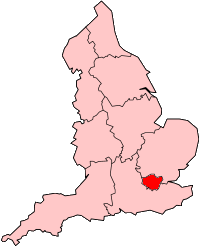
Scouting in the region of Greater London is largely represented by The Scout Association of the United Kingdom and some Groups of traditional Scouting including the Baden-Powell Scouts' Association.

Scouting in East of England is about Scouting in the official region of East of England. It is largely represented by The Scout Association of the United Kingdom and some Groups of traditional Scouting including the Baden-Powell Scouts' Association.
The 17th World Scout Jamboree was held from August 8 to 16, 1991, and was hosted by South Korea at Seoraksan National Park, 200km from the border with North Korea, and another 200km from Seoul.

Jamboree 2008 was developed as "an Inter-organisational & International event" which was intended to "bring 600 young people from Scouting and Guiding together — to develop skills & friendships that will lay the foundations for the next 100 years of Scouting". The Jamboree was set up to be independent of Associations, and hoped to involve members of the World Federation of Independent Scouts (WFIS), the World Organization of the Scout Movement (WOSM), and the World Association of Girl Guides and Girl Scouts (WAGGGS).
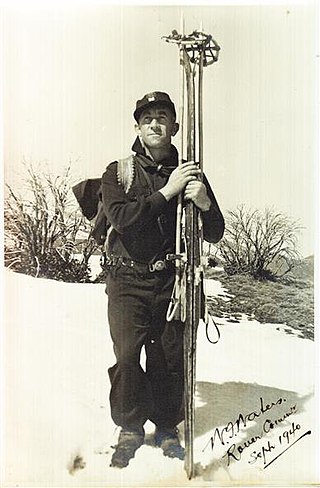
William Francis "Bill" Waters was Scouts Victoria's Headquarters Commissioner for Rover Scouts between 1930 and 1965.















